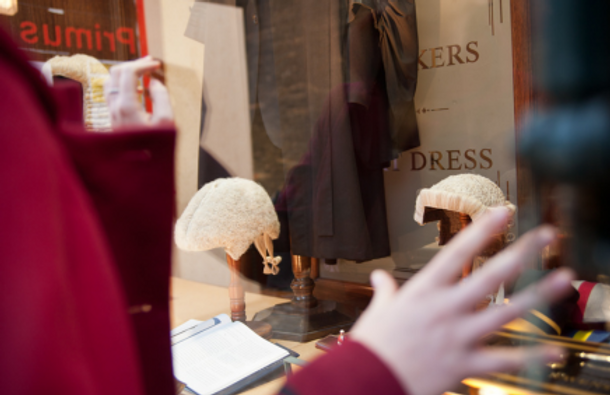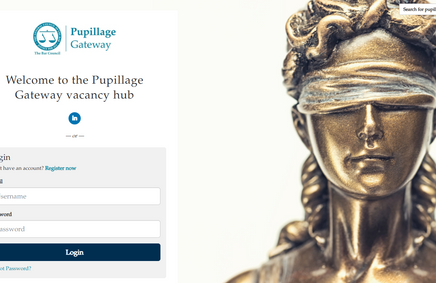How does it work?
You can use your Pupillage Gateway account to:
- Search for vacancies by location, award or earnings, length of pupillage, pupillage start date and practice area
- Prepare your applications in advance (for AETOs that accept applications through the gateway)
- Add or edit information relating to your academic and work experience history to your profile, which forms part of your application, so it is already completed before the application window opens
You can log in between July and the closure of the application window to edit your academic and work experience history.
How do I apply for pupillage?
Here’s a checklist of what you need to apply for pupillage:
Before applying
- You must be confident that you will pass your Bar training course before the advertised start date of any pupillage that you apply for. Eg if your pupillage is advertised to start in October 2028, then you must have completed all academic and vocational stages of training at this point
Check the applicant timetable
Setting up your account
- Set up your account
- Add your academic and work experience history – include all your academic and employment history. Ensuring you include your grades pending or obtained. This will be added to all your applications automatically
Search for and save pupillage vacancies
- Look for vacancies. You can search by keyword (chambers name, practice area), location, start date and pupillage award
- Set up search alerts
- Save your preferred advertisements under My Watchlist
Preparing your applications
- Prepare your answers, in advance using our sample application form for the standardised questions and check the adverts for the AETO questions
- Complete your application/s and submit on the Gateway
- If AETOs manage their recruitment process outside of the Gateway, they will inform you how to apply on their advert
Monitoring your applications
- Save draft: you can save your applications and complete them later
- Withdraw: you can withdraw your applications at any time
- Status: you can check the status of your applications under My Pupillage Applications
- Interviews: AETOs will either allow you to choose a selected time slot or set an interview time through the Gateway
- Referees: an AETO may ask for your referees, either automatically though the Gateway, or by email
I am having trouble with my application
For step-by-step instructions on how to use the Gateway, view our How to use page for applicants
For technical issues:
- Capture the error (grab a screenshot)
- Note what section you’re experiencing trouble with
- Note down what you are trying to add to the system
- Send us the details of your issue via email: [email protected]
For questions or assistance with the pupillage process:
- Contact the AETO you are applying to for specific application questions
- Contact us [email protected] for general questions about the pupillage process
Create your candidate account, search and apply for vacancies, and start working on your applicant profile.




